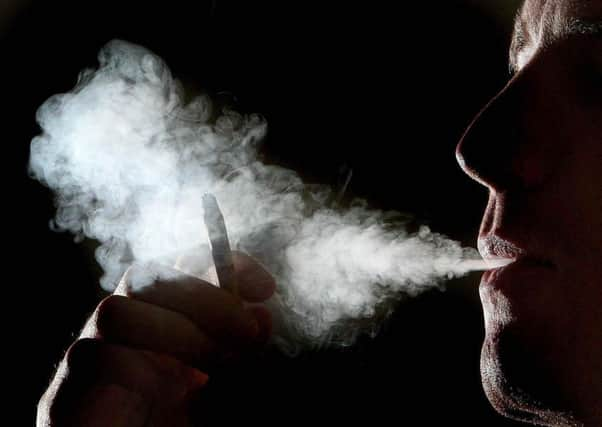Lancashire's smoking shock


But the benefits of quitting are taking time to filter through, according to health chiefs.
Smoking-related hospital admissions in the county have risen, while deaths from tobacco use have roughly stayed the same.
Advertisement
Hide AdAdvertisement
Hide AdYet on the flip side, far fewer young people are lighting up – just eight per cent of county 15-year-olds smoke now, as opposed to 21 per cent before the ban – and most of us can now expect to live longer.
Today, as the Post begins a three-part investigation into the effects of a decade of smoke free legislation, public health boss Denise Morris explained: “Where we have seen the biggest impact is in the reduction in young people taking up smoking – that in itself bodes really well for the future.”
However, the number of people being admitted to hospital in Lancashire from smoking-relating illnesses has rocketed in recent years.
And thousands of people are still dying every year from horrific conditions linked to tobacco.
Advertisement
Hide AdAdvertisement
Hide AdMrs Morris, said: “Ten years in terms of health outcomes is a relatively small drop in the ocean.
“It’s not just the deaths caused by smoking, it’s the chronic diseases that impacts massively on people’s well-being.”
And Dr Arif Rajpura, the director of Public Health Blackpool, said: “Most of the benefits will come in the long term, because we reduce the risk of heart disease, stroke, heart disease, and lung cancer.”
He added: “There have been a number of studies that have looked at health benefits and there has been some even in the short term.”
Advertisement
Hide AdAdvertisement
Hide AdBetween 2007, when the Smoke Free ban was introduced, and 2009, 6,817 people died in the county from smoking-related conditions such as cancer, heart disease, and respiratory failure.
From 2013-15, that number fell slightly to 6,789.
The number of people who required hospital stays increased by a significantly higher number – from 12,561 in 2009/10 to 13,574 in 2015/16, an increase of around eight per cent.
However, life expectancy in Preston has increased in that period, with boys born between 2012-14 expected to live more than two years longer on average than those born between 2005/07.
Girls will live around a year longer, figures from the Office for National Statistics showed.
Advertisement
Hide AdAdvertisement
Hide AdAnd the ‘healthy life expectancy’ – an estimate of how many years residents might live in good health – is also up, from 55 in 2009/11 to 56.4 in 2013/15.
Denise agreed that, while a number of factors have to be taken into account, fewer people smoking will lead to a boost in life expectancy.
She added: “There’s lots of stuff out there that will show you the benefits of stopping smoking. It’s never too late to become an ex-smoker, that’s a really positive message to give.
“When people have smoked for a long time, and have seen all the health messages, some may feel, ‘Well, the damage is done’.”
Advertisement
Hide AdAdvertisement
Hide AdIt takes 10 years for the risk of lung cancer to fall to half that of a smoker, NHS figures show, and 15 years for the risk of a heart attack to fall to the same as someone who has never smoked.
Circulation is improved after just two to 12 weeks, while breathing problems are eased after three to nine months.
Mr Rajpura said studies had found a fall in the number of children developing asthma as a result of the smoking ban, and in the number of still-births, neonatal deaths, and babies being born under weight.
“Adult smoking rates have fallen nationally, from 19.3 per cent in 2007 down to 15.5 last year
“We have seen a downward trend.
Advertisement
Hide AdAdvertisement
Hide Ad“The Smoke Free legislation in my experience has had an impact, and what we found is that people strongly support the legislation, and that has continued to rise.
“Lots of people don’t want to be exposed to second-hand smoke anymore. It has changed attitudes.”
Lancashire Care NHS Foundation Trust’s Quit Squad, which helps people across the county kick the habit, said a review last year found ‘clear evidence the benefits are already being seen following smoking bans, with reduced deaths, improved respiratory health, and improved health of newborns.’ It added: “There are also reports of a 40 per cent reduction in heart attacks since 2007. NHS data suggests there is a clear association between the smoking ban and a decreased rate of admissions.”